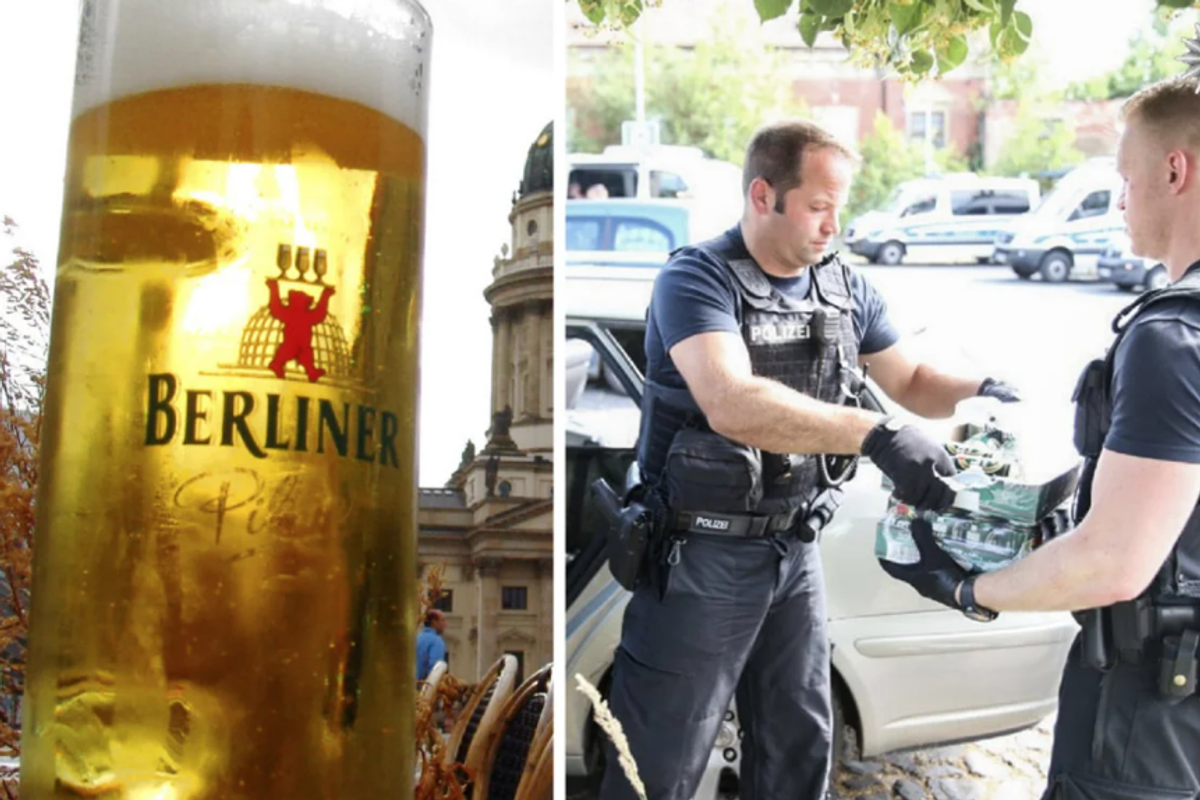Germans bought an entire town's beer supply before a white supremacist music festival
The town people and local courts worked together to dry the Nazis out.
German police at a white supremacist music festival.
If you're a white supremacist, I imagine drinking beer (or any other alcoholic beverage) is a nice way to relax and tune out the fact that you're a terrible person who's helping set human progress back at a rate the bubonic plague would be proud of. But for some self-professed white supremacists, it wasn't quite so easy on a June weekend in Germany back in 2019.
According to Newsweek, the hundreds of neo-Nazis who flocked to the "Shield and Sword Festival" in Ostritz found themselves uncomfortably dry when a court imposed a liquor ban at their gathering of hateful bigots who also like to listen to awful music together. The ban's aim was to prevent any violence that might erupt (you know it would...), and the police confiscated more than a thousand gallons of alcohol from those attending the weekend-long event. They even posted pictures on Twitter of the alcohol they'd removed from participants.
But that's only half the story.
"The alcohol ban at the meeting/event site of the Neo-Nazi meeting in Ostritz has been consistently enforced by our forces since yesterday," the force tweeted on June 22. "Alcoholic beverages are taken off before entering the premises."
Residents of the town of Ostritz, who've had to deal with the bigots before (they threw the same festival last year on Hitler's birthday), knew that the ban wouldn't stop the festival-goers from trying to obtain more alcohol while in town. So the townspeople got together a week before the festival and devised a plan which would truly make the white supremacists focus on how terrible neo-Nazi music is: They bought up the entire town's beer supply.
"We wanted to dry the Nazis out," Georg Salditt, a local activist, told reporters. "We thought, if an alcohol ban is coming, we'll empty the shelves at the Penny [supermarket]."
"For us it's important to send the message from Ostritz that there are people here who won't tolerate this, who say 'we have different values here, we're setting an example..." an unidentified local woman told ZDF Television.
At the same time the festival was going on, residents also staged two counter-protests and put on a "Peace Festival" that commemorated the 100th anniversary of the local soccer team to drive home the point that bigotry wasn't welcome. If the festival is held in the same town again next year, ticket-buyers should be aware that Ostritz isn't playing around when it says that white supremacists aren't welcome.
Michael Kretschamer, the local state premier, applauded the efforts of the locals and state officials. "I am very impressed with how in such a small town…the citizens stand up to make it clear that right-wing extremists are not wanted here," Kretschmer told the DPA news agency.
There's some good news, too: Aside from the fact that residents aren't afraid to send the message that they're intolerant of intolerance, attendance to the far-right music festival has drastically decreased in the past year. In 2018, 1,200 people attended, according to the BBC. This year? Approximately 500-600. Here's hoping the festival won't have a return engagement next year.
This article originally appeared six years ago.

